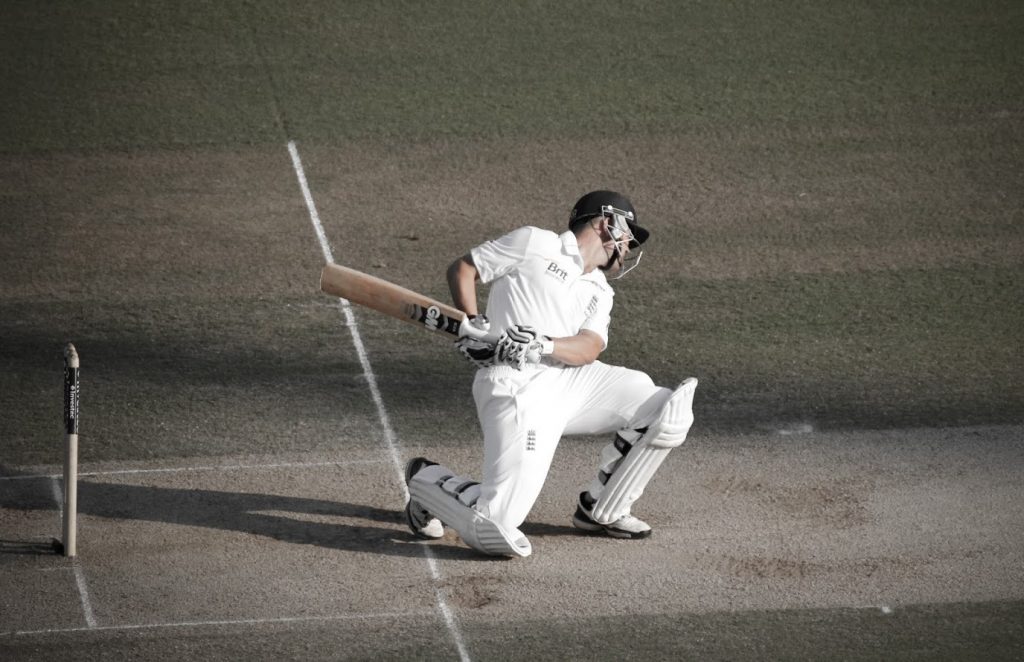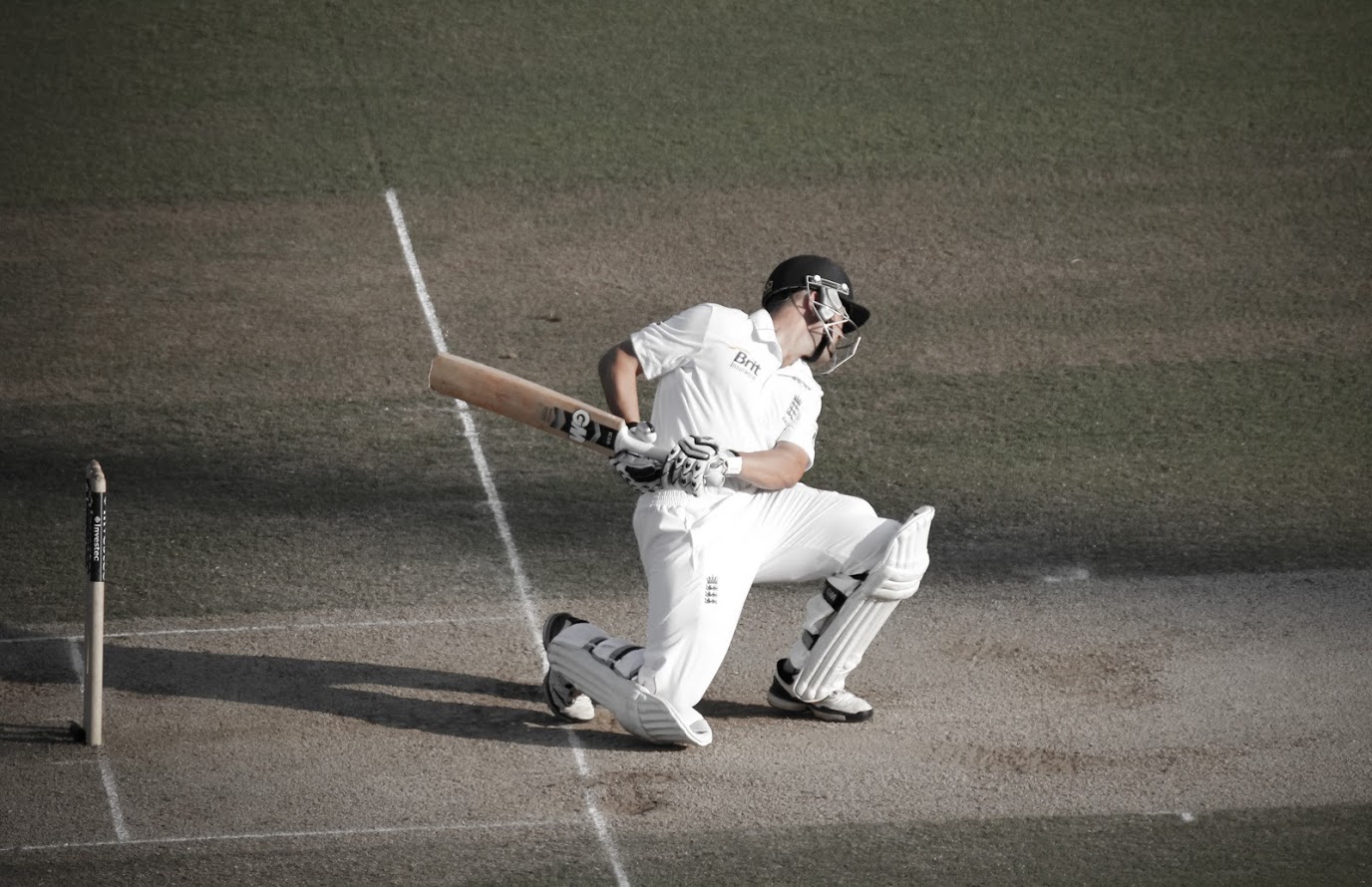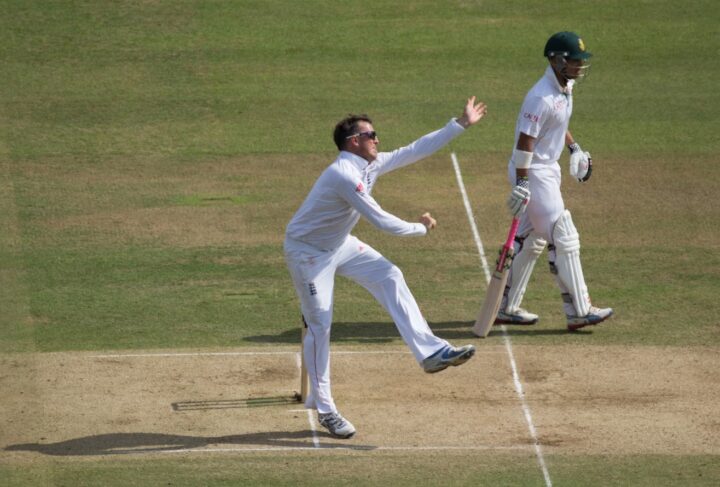A few years ago my employer sent everyone off on a stress awareness course; previously happy people came back as nervous wrecks because they never realised how stressed they were. In all truth we had been fooling ourselves. An increasingly hectic lifestyle was taking its toll on our mental health. The ranks of Joe Public can manage their emotional wellbeing in private, free from scrutiny and judgement. But what about elite athletes who ply their trade in the public eye, where every move is captured by social media and analysed under a microscope. Why do our cricketers seem so vulnerable; are there mental pressures unique to this most genteel of sports?
Ben Stokes’ withdrawal from the upcoming test series against India was a shock to many observers. A statement was issued with the cold precision of a straight drive off the back foot. Stokes was taking an indefinite break from the game to prioritise his mental wellbeing. While newspaper headlines screamed louder for effect nobody could be remotely surprised. Emotional rollercoaster doesn’t begin to explain Stokes’ life in recent years.
In September 2017 Stokes was arrested and charged with affray during a night out in Bristol. His acquittal and apparent redemption begs one simple question: would events have escalated as they did if it was Ben Stokes the plumber and not the world class cricketer? Not only is Stokes being held to a higher standard of propriety but is a natural target even when he is off duty. You only appreciate the highs when you feel the lows and Stokes has claimed his share of magic moments. He was a key factor in England’s World Cup win and played a sensational innings in the 3rd Ashes Test, both in 2019. But then suffered a crushing blow when his father Ged died after a long battle with cancer.
Are these not the challenges that life regularly throws our way; you just get on with it like anyone else would. However, not everyone lives their life through a lens and marked as public property. Ben Stokes does not have the luxury of anonymity; one false move and adulation quickly turns to ridicule. Such pressures might appear no different to those faced by athletes in other sports. But it is the very nature of the game that cranks up the pressure to intolerable levels.
A top international travels the world playing cricket and can earn £625,000 annually from a central ECB contract. They may also have an additional deal for white ball cricket which can net a further £275,000. For a single man it is a dream scenario and really couldn’t get much better than that. But when that player settles down, marries and starts a family everything changes. A gruelling schedule of touring will force long periods of separation from close family. Stokes suffered when confined to a bio bubble during the 2020 series against the West Indies and Pakistan.
Yet again the same question nags that he’s not the only one going through it; although some players will handle periods of isolation better than others. But how many more suffer in silence, and for various reasons decline to go public with their concerns. Such anxieties are nothing new and have always hovered in the background. When Ian Botham quit touring in the mid-80s he spoke candidly about the benefits: I get to see my kids open their presents on Christmas Day. Elite cricket takes its toll on players and inhibits the basic rights we all take for granted.
The structure of the game creates a singular mental impact and can have far reaching consequences for the participants. A game of football usually lasts for 90 minutes, rugby is 80 minutes and a tennis match will typically last for 2-3 hours. In total contract, a test match can last for 5 days. Whilst lunch and tea breaks are included, a player has to maintain a competitive mindset for around 8 hours each day. They will spend long periods in the field and sit for hours in the pavilion waiting to bat. There’s too much time to think and dwell on the detail. Errors are analysed to the nth degree in a game already drenched by tactics. Other sports contain the intensity of competition within a limited timeframe; with cricket the power of concentration is stretched to its very limits.
The practical effects are laid painfully bare in the excellent Barney Douglas documentary The Edge. Toby Jones narrates the film with forensic clarity as the opening frames leave no doubt where the deepest scars are left. Cricket is a duel between mind and time; a batsman’s helmet gently sinks into deep waters leaving air bubbles in its wake. The imagery of suffocation and drowning may be hyperbole; but it is undeniably a game played in the mind where cerebral fitness is the key to success.
It tells the story of England’s journey to the title of top ranked test nation in 2011. Two years previously the team was in complete disarray; without a captain or coach England were 7th in the table of test nations. Critics pounced on their shortcomings; they lacked direction and were mentally weak in tough situations. Enter implacable coach Andy Flower and new captain Andrew Strauss; a re-discovered sense of purpose was close at hand.
A major ingredient in this feat of alchemy was the introduction of South African Jonathan Trott. The inscrutable top order batsman was just what England needed. With granite like toughness he found quiet sanctuary each time he took the crease. In Trott’s words concentration was the absence of irrelevant thought. A player with excellent technique, team mates marvelled at his fastidious pre-match rituals. It was a thrilling ride to the top as England took the Ashes twice before a 4-0 whitewash of India confirmed their status as ICC Test Champions.

But like Astronauts who fly to the moon how do you follow the pinnacle of achievement? The short answer is to stay at the top by maintaining the same standard. Which is much easier said than done; success and failure elicit the same level of pressure; if anything the former is more challenging because improvement is difficult to measure. Andrew Strauss confessed to a feeling of anti-climax, while Kevin Pietersen felt jaded by a punishing schedule of commitments. Moreover, his combative personality was grating and beginning to cause division. Suddenly there were meltdowns in every corner of the dressing room. Strauss felt undermined by texts from Pietersen to South African opponents. Others sensed a fear of failure had gripped the team’s psyche.
Most surprising of all was the breakdown suffered by Jonathan Trott. The hitherto cool, calculating run machine was haunted by self-doubt and losing focus. Matters came to a head during the 1st Ashes Test down under in November 2013. A fearsome Aussie attack was led by the wickedly fast Mitchell Johnson. Trott described his feelings in an interview with Donald McRae of the Guardian: ‘they circled like hyenas round a dying zebra’. Johnson dismissed him in both innings for a combined score of 19. Alastair Cook later commented that Trott had tears in his eyes upon joining him at the crease.
Trott subsequently left the tour citing a long term stress related illness as the cause. He was pilloried in many quarters for a perceived lack of commitment. Ex-England captain Michael Vaughan questioned his motivation when Trott later revealed it was burnout and not depression that forced his hand. Vaughan and others believe he simply did a runner when the going got tough. Whilst there is logic in this argument, burnout and depression would appear to be symptoms of the same condition. In any event people are entitled to their opinion, but not everyone is qualified to diagnose Trott’s mental condition.
It certainly doesn’t appear to have affected his career record. In 52 tests Trott scored 3,835 runs with an average of 44. He scored 19 half centuries and 9 tons with a top score of 226. They are pretty good figures by anyone’s standards, but simple stats don’t tell the story of what a player might be experiencing on a daily basis.
Marcus Trescothick broke into the test side as a sound opening bat. By 2002, he had emerged as England’s top batsman during a highly successful tour of India. The calm and composed left hander steadily built his reputation, and even had a brief stint as captain when Michael Vaughan was injured. Trescothick was a member of the 2005 Ashes team and second only to Kevin Pietersen in runs scored. But in a curious parallel with Jonathan Trott seven years later, he returned from the tour of India in 2006 for personal reasons. The root cause became clear during the 2006-07 Ashes series as he flew home early due to a stress related illness.
In March 2008 Tresco announced his retirement from international cricket, having tried on numerous occasions to make it back to the international stage it has proved a lot more difficult than expected. In his autobiography, Coming Back to Me, he explained that anxiety had been an issue since his early childhood. Such candour underlines how poor mental health can only be managed and not necessarily cured. In an interview with BBC Radio 5 Live his honesty was impressive, I live with depression and anxiety pretty much every day of my life, but I just manage it with medication and keep on top of it that way.
There is no question that competing at the highest level of sport can trigger extreme levels of anxiety; cricket generates its own brand of examination unknown in other sports. Trott and Trescothick are opposite sides of the same coin in the way mental health can affect people’s lives. Trott’s condition appears to have been triggered by exposure to elite competition; while Trescothick has fought similar demons all his life. In a society increasingly obsessed with self-analysis it’s tempting to blame every failure on mental breakdown. It should never be used as an excuse for poor performance; but it’s equally important we recognise the signs when someone is struggling.
Brian Penn









Good piece Brian. Having suffered from extreme anxiety some years ago, I have first hand experience of how bad this can be. If your in the public eye, well it’s even worse of course. I found it was something that took time to resolve, and in my case I had two spells over a one year period. Interestingly medication didn’t help much, and it was resolved by my own strength of will and attending meditation classes which were priceless. I still go, not because of any anxiety reasons, but I find it relaxing as well as a pleasant sociable activity. Everyone is different of course, but your right, the signs are often not recognised as important and dismissed as “just pull yourself together man”. Not that easy though, and I’m sure Stokes, Trott and Trescothick would echo that thought.
It just shows how we’re not programmed to spend our lives being assessed in the goldfish bowl of the media, who operate on freedom without responsibility mode. They spend so much time pontificating about the new mental health issues without admitting they are primarily responsible for it.
Cricket isnt a special case, it’s just a symptom of the modern day malaise that we call celebrity. Our top sportsmen and women are the victims of this ever increasing high profile existence. It’s just not natural.
In cricket the proliferation of international fixtures has meant its impossible for the top players to get a real break from it on the relative quiet of county cricket. It’s not just the matches is The the tours and travel involved in cricket, which no other sport has, make burn out inevitable. Do the administrators care, not a jot. They also pay lip service to the problem withourt admitting any responsibility for it, as there’s no sign of a change to the ever increasing congestion of short haul touring.
An old fogey like me is just glad I’m not going to be around to have to deal with what I see as an increasingly uncivilised pace to life. I just see that we’re moving at a hundred mph in the wrong direction.
You see you can’t get away from The Hundred, maybe it’s an omen.
Always good to read another re-telling of the Pravda version of the Flower-Strauss-Pitersen saga, we’ve really not had enough of those. The use of the word “alchemy” was just random, of course.
Elite sport is being used to sell a whole narrative about “mental health”. Everyone has “mental health problems” even if you don’t know it, especially if you don’t it. We all need to hand ourselves over the mental heath industrial complex forthwith for cure – well, not for cure really but for treatment. A patient cured is a customer lost. Treatment goes on indefinitely. Sign up for tracking, tracing and monitoring for the rest of your life. That’s progress. Funny how all these treatments don’t lead to less “mental health problems” overall but their increase. How stupid do you have to be to believe that more “mental health problems” is proof this approach is working? Still, if it means more expensive sessions and more selling of pharmaceuticals, who cares?
Psychiatry is the very definition of a pseudo-science. Show me the scientific method in it. Freud never cured one patient – but do a deep dive into his background and there’s plenty extremely dubious to be found..
It sounds to me that you are yet another person who does not recognise mental health as an illness. It’s plain nonsense to say that “everybody has mental health problems even if they don’t know it”. Believe me you do. That’s just dismissive. I do hope you never suffer from it
I have to say I enjoy the comments here, and find them insightful and interesting, whether I agree with them or not. But I’m afraid this comment does not come into that category. It’s dismissive and trivialising of folk with genuine mental health challenges. I support folk in this category every day in my profession, and to dismiss the condition the way you appear to do, Simon, is unfortunate, to put it mildly…..
Evidentially you’ve never had to deal with being in the public eye with all the scrutiny and potential embarrassment of failure that involves. I’ve had a couple of jobs where media access has been an issue and I can tell you it ramps up normal stress 10 fold.
Download the Cricket Mazza App for android, We provides you with the 360 degrees cricket entertainment from live score to each and every latest news updates on your fingertips.